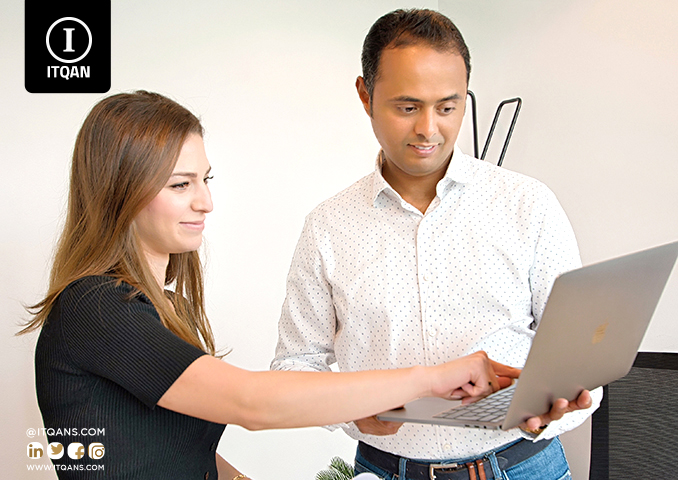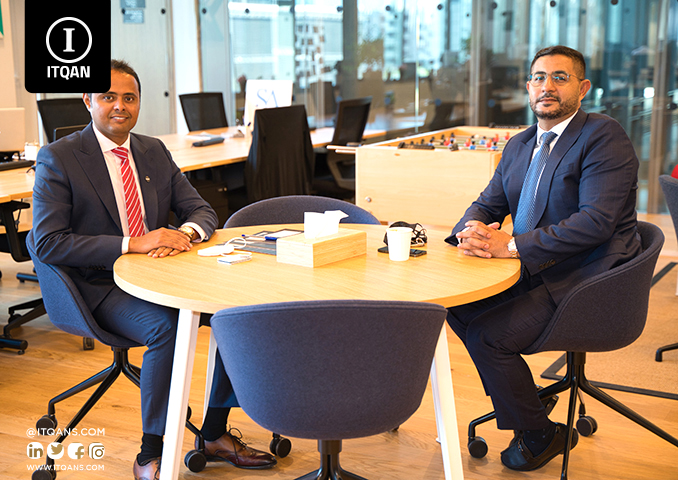An accountant is the person responsible within the company for providing financial management and consulting services to clients or companies they work for. The profession of an accountant is indispensable in any company, regardless of its type or size. It is worth noting that “personal skills” may help the accountant in the workplace in addition to the more specialized technical skills required to perform his job duties. Talented accounting professionals are those who understand the intricacies of preparing financial reports, auditing, tax law, data analysis, and the like. But in our world today, after the tremendous technological development and many institutions integrating artificial intelligence and machine learning into their accounting operations, many professionals have begun to wonder about the skills needed to be a successful accountant in the digital landscape of our world today. Below, we will show you, dear reader, the most important tools and skills that every successful accountant needs .
The best skills that an accountant must acquire and develop
Employers look for certain technical accounting skills in an accountant’s resume, such as:
- Critical thinking skills
This skill allows the accountant to look at problems from all angles and apply accounting practices to both new and old financial information to identify problems and determine solutions.
- Knowledge of general business practices
A bachelor’s degree in accounting can be supplemented with a master’s degree in business administration to gain valuable knowledge of business operations. This is a great advantage for an accountant in the workplace, as he will undoubtedly deal with employees in other departments and colleagues or clients in other industries. This will allow you to establish a business organization.
- Knowledge of accounting practices
It is important for an accountant to have knowledge of regulatory standards relating to corporate finance to ensure that financial reporting requirements are met and integrity is maintained in the organization’s accounting practices.
- Proficiency in accounting programs in general
Proficiency in using common spreadsheet programs among companies, accounting and financial reporting programs, compliance, project management, database, financial reporting and analysis as well. However, if you are an accountant whose work depends on tax preparations, you will need a comprehensive knowledge of tax programs. Another accounting skill in demand in the job market is “the ability to navigate the enterprise resource planning (ERP) program.”
- Ability to analyze data
An important skill for an accountant is the ability to analyze data because an organization’s financial data is one of its greatest assets, and those who have the skill of knowing the data query language have an additional advantage that distinguishes the employee from others. Data query skills also allow accountants to identify patterns in business data sets, locate errors, and detect fraud.
- Accounting organizational skills
Organizing your accounting is very important because an accountant has to juggle many projects and clients at the same time.
- Written and verbal communication skills
In business, an accountant may be called upon to conduct interviews, write reports, break down financial information into general terms, interact with your company’s clients, and work collaboratively with your team to collect and record company data. An accountant must also have the ability to communicate both verbally and in writing.
- Ability to prepare financial statements
The basic data that an accountant must be able to prepare are income statements (profit and loss), cash flow statements (movement of cash assets), and the balance sheet. Because such data provides your company with an overview of its financial health.
- Excel and other important programs for accountants
Unlike other companies, all companies have their own accounting systems, and many of them are taught to employees on the job. However, Microsoft Excel remains a universal tool that accountants must master. Because of its flexibility and enormous capabilities, Excel is the essential program for successful accounting performance.
- Problem Solving Skill for Accountant
Professional accountants must use the tools available to them to make evidence-based decisions and financial strategies that align with their employers’ core business objectives. Accountants are also financial problem solvers and are responsible for addressing regulatory issues and legal compliance in court on behalf of their company.
- Personal competencies of the accountant
In today’s highly technology-driven business world, human relations and relationship building play a critical role in accounting. Accountants can build stronger relationships with clients and business owners, leading to better financial results in the long run by building trust and cooperation between the two parties.
- Ethical behavior of an employee qualified for the accounting task
Accountants are bound by a code of conduct and ethics that emphasize honesty and integrity and must at all professional levels adhere to high standards of objectivity, impartiality, due care and strict confidentiality to protect both employers and clients.
We would like to mention in particular the documents that must be entered into accounting.
All documents created and issued by the company must be entered. They are called accounting documents. The accountant must record all the following data, such as:
Purchase invoices, sales invoices, bank statements, VAT returns, tax notices, payroll books.
Quotations, purchase orders and delivery receipts must not be entered into the accounts at all, but must be kept for a certain period and submitted to the tax authorities in the event of any inspection.
Hard Skills Accountants Need to Acquire
Use accounting software such as (Restrictions / QuickBooks / Zoho) and know how to prepare and interpret financial statements and other reports, develop effective methods for preparing financial reports, and plan and implement accounting controls.
According to the American Institute of Certified Public Accountants, successful accountants have certain skills and competencies that help them succeed, as follows:
- The importance of problem solving skills for the accountant.
- The importance of commercial awareness for the accountant.
- Ethical behavior of the accounting mission.
- The importance of communication skills for the accountant.
- Personal competencies of the accountant.
- The importance of time management skills for an accountant.
At the end of our article, it must be said that the accountant is an essential cog in any type of business. He is responsible for keeping accounts, collecting and verifying accounting data, and determining closing operations and regulatory documents. The nature and organization of the accountant’s work varies greatly depending on the size of the company.














